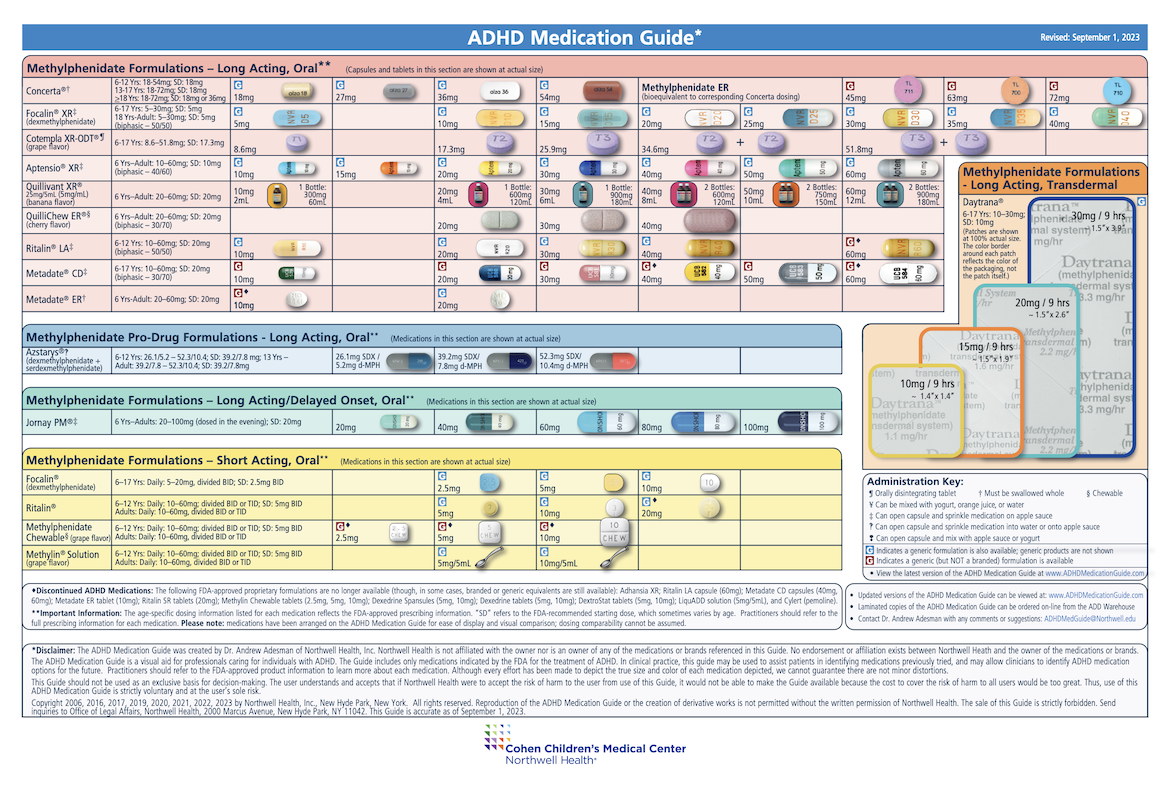Same Day Mental Health Services for Urgent Assistance and Care
Same Day Mental Health Services for Urgent Assistance and Care
Blog Article
Discovering Effective ADHD Treatment Alternatives for All Ages
The complexities of Attention Deficit Attention Deficit Disorder Problem (ADHD) present one-of-a-kind obstacles across various age groups, demanding an extensive expedition of effective therapy options. A mix of behavior treatments, pharmacological interventions, and way of life adjustments has actually revealed assurance in addressing the diverse needs of people with ADHD.
Understanding ADHD and Its Effect
Attention-Deficit/Hyperactivity Disorder (ADHD) is a neurodevelopmental condition defined by persistent patterns of negligence, attention deficit disorder, and impulsivity that can considerably affect numerous facets of an individual's life. It generally manifests in childhood years, although symptoms can linger right into the adult years. The core signs of ADHD can disrupt instructional efficiency, prevent social interactions, and complicate occupational undertakings.
Individuals with ADHD frequently have a hard time with preserving emphasis on jobs, arranging tasks, and following up on instructions, which can cause scholastic underachievement (Depression Treatment). In social contexts, impulsivity might cause difficulties in developing and sustaining partnerships, as people may interrupt discussions or make rash decisions without thinking about effects
Furthermore, ADHD can co-occur with various other mental wellness problems, such as anxiety and anxiety, even more complicating diagnosis and treatment. The variability in signs and symptom presentation means that ADHD can influence people in different ways, requiring a personalized method to management. Understanding ADHD's complex influence is vital for creating efficient approaches that support individuals in navigating daily difficulties and attaining their potential. Comprehensive awareness of ADHD's nature and implications prepares for checking out appropriate therapy choices customized per person's needs.
Behavioral Therapies for ADHD
Numerous behavioral therapies have been developed to properly attend to the challenges linked with ADHD, concentrating on modifying particular behaviors and fostering crucial abilities. Amongst the most identified techniques are cognitive-behavioral therapy (CBT), parent training, and social skills training.
CBT assists individuals recognize and transform negative thought patterns and actions, promoting a more favorable expectation and boosted self-regulation. This therapy typically includes sensible techniques for managing impulsivity and enhancing company. Parent training programs equip caregivers by equipping them with strategies to strengthen favorable actions and set constant boundaries, which can be especially useful for children with ADHD.
Social skills training is an additional crucial component, teaching people with ADHD how to communicate successfully with peers - Depression Treatment. This approach typically entails role-playing and comments to improve interaction, participation, and conflict resolution abilities
Integrating these behavior modifications into a detailed therapy strategy can dramatically boost working and lifestyle for people with ADHD. Inevitably, the efficiency of these treatments depends on tailored strategies that think about the one-of-a-kind demands of each individual, therefore cultivating strength and versatility in life.
Medicine Options Available
For numerous individuals with ADHD, medication can play a substantial function in handling signs and improving general performance. The two primary categories of drugs prescribed for ADHD are energizers and non-stimulants.
Energizers, such as methylphenidate and amphetamine-based medicines, are one of the most commonly used therapies. These drugs work by raising the levels of natural chemicals, especially dopamine and norepinephrine, in the brain, which helps enhance interest and lower impulsivity and attention deficit disorder. They usually produce rapid results, making them a preferred alternative for many people.

It is crucial for doctor to carry out a comprehensive assessment to determine one of the most proper medication based upon individual requirements, medical history, and potential side results. Regular follow-up and surveillance are also vital to guarantee the effectiveness of the picked treatment and to make any type of necessary adjustments.
Way Of Life Adjustments to Consider
Handling ADHD effectively extends past drug, as way of living adjustments can substantially boost total well-being and signs and symptom control. Integrating organized routines is important; regular schedules assist people with ADHD handle their time successfully and lower sensations of overwhelm.
Regular exercise is one more crucial component. Workout not only helps to enhance concentration yet additionally increases state of mind and decreases tension levels. Activities such as yoga or team sports can be specifically helpful, promoting both fitness and social counseling organizations communication.
Nourishment additionally plays a critical duty. Depression Treatment. A well balanced diet plan rich in omega-3 fatty acids, whole grains, and lean healthy proteins can contribute to enhanced focus and cognitive feature. Limiting sugar and processed foods is suggested, as these can worsen hyperactivity and impulsivity
Rest hygiene is crucial for taking care of ADHD symptoms. Developing a routine rest schedule and developing a restful setting can enhance sleep top quality, bring about much better attention and emotional guideline.
Different and Alternative Approaches
Alternative and alternative approaches to ADHD therapy offer a varied variety of alternatives that match typical approaches. These techniques often concentrate on lifestyle adjustments, dietary treatments, and healing methods that aim to boost total wellness while dealing with ADHD symptoms.

Mindfulness and behavioral treatments are likewise gaining grip as holistic interventions. Practices such as yoga exercise, meditation, and cognitive-behavioral therapy can cultivate self-regulation and improve focus. These techniques sustain psychological strength, which is specifically beneficial for individuals with ADHD.
Organic supplements, such as ginkgo biloba and ginseng, are sometimes discovered; however, it is important to consult medical care professionals prior to including these right into therapy plans. While alternative and holistic techniques can give valuable support, they need to preferably be utilized along with evidence-based treatments to achieve optimal outcomes for managing ADHD across every ages.
Conclusion
In summary, efficient ADHD therapy demands a comprehensive technique that consists of behavior modifications, drug, way of living modifications, and holistic approaches. Customized treatments can substantially improve individuals' working and top quality of life, while appropriate medication guarantees ideal signs and symptom management. Taking on find this organized routines, engaging in normal physical activity, and practicing mindfulness can improve psychological law and interest. This diverse method underscores the value of customized care in resolving the diverse needs of individuals with ADHD throughout every age groups.
Report this page